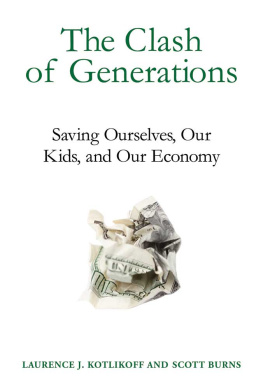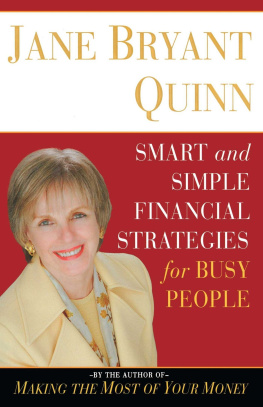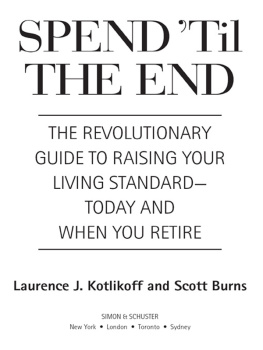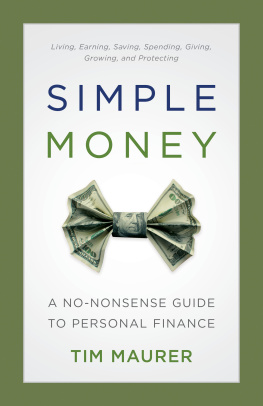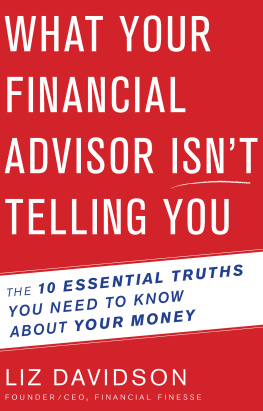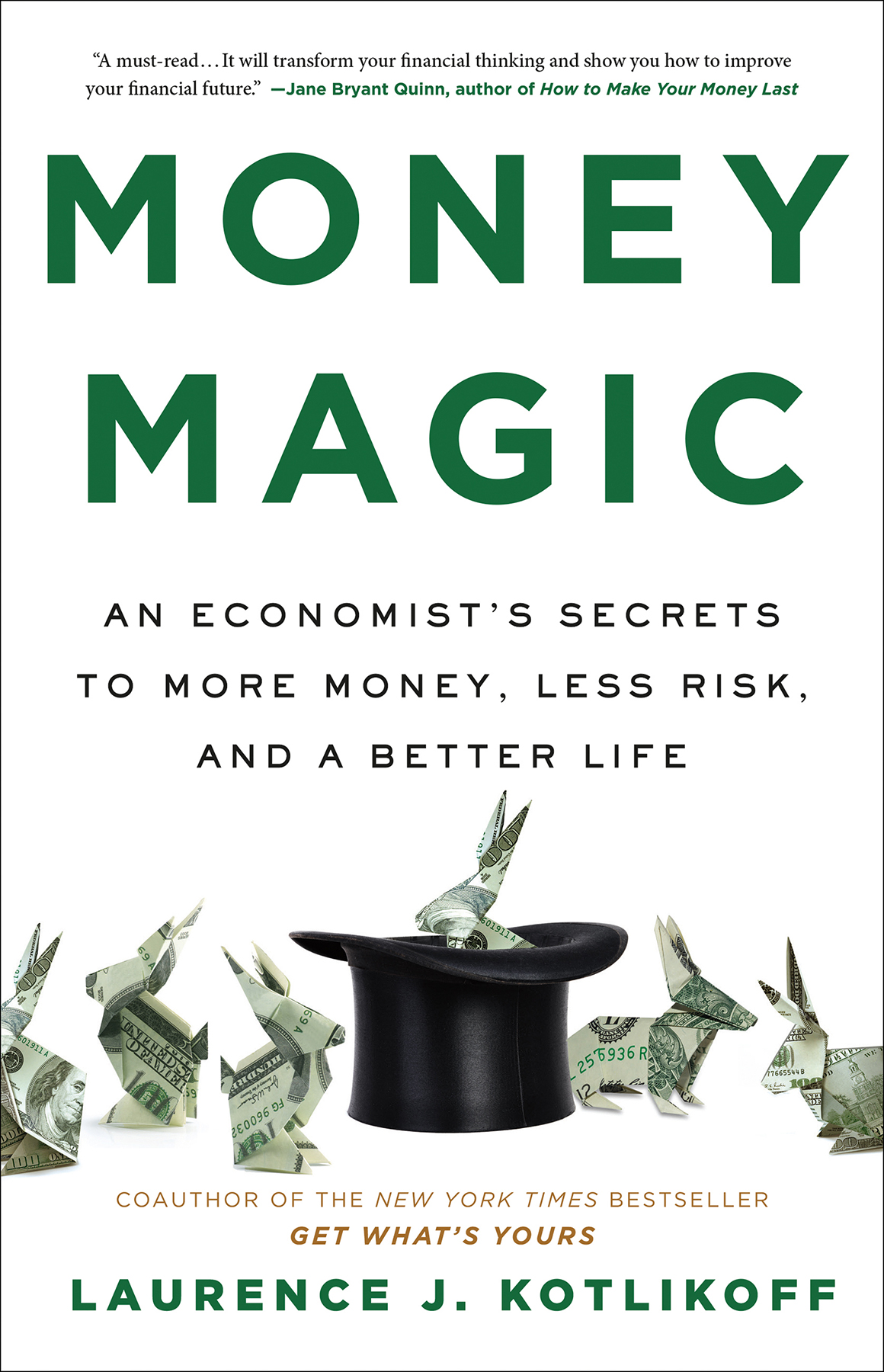Laurence Kotlikoff - Money Magic: An Economist’s Secrets to More Money, Less Risk, and a Better Life
Here you can read online Laurence Kotlikoff - Money Magic: An Economist’s Secrets to More Money, Less Risk, and a Better Life full text of the book (entire story) in english for free. Download pdf and epub, get meaning, cover and reviews about this ebook. year: 2022, publisher: Little, Brown Spark, genre: Romance novel. Description of the work, (preface) as well as reviews are available. Best literature library LitArk.com created for fans of good reading and offers a wide selection of genres:
Romance novel
Science fiction
Adventure
Detective
Science
History
Home and family
Prose
Art
Politics
Computer
Non-fiction
Religion
Business
Children
Humor
Choose a favorite category and find really read worthwhile books. Enjoy immersion in the world of imagination, feel the emotions of the characters or learn something new for yourself, make an fascinating discovery.

- Book:Money Magic: An Economist’s Secrets to More Money, Less Risk, and a Better Life
- Author:
- Publisher:Little, Brown Spark
- Genre:
- Year:2022
- Rating:3 / 5
- Favourites:Add to favourites
- Your mark:
Money Magic: An Economist’s Secrets to More Money, Less Risk, and a Better Life: summary, description and annotation
We offer to read an annotation, description, summary or preface (depends on what the author of the book "Money Magic: An Economist’s Secrets to More Money, Less Risk, and a Better Life" wrote himself). If you haven't found the necessary information about the book — write in the comments, we will try to find it.
Increase your spending power, enhance your standard of living, and achieve financial independence with this must-read guide to money management (Jane Bryant Quinn).
Laurence Kotlikoff, one of our nations premier personal finance experts and coauthor of the New York Times bestseller Get Whats Yours: The Secrets to Maxing Out Your Social Security, harnesses the power of economics and advanced computation to deliver a host of spellbinding but simple money magic tricks that will transform your financial future.Each trick shares a basic ingredient for financial savvy based on economic common sense, not Wall Street snake oil. Money Magic offers a clear path to a richer, happier, and safer financial life. Whether youre making education, career, marriage, lifestyle, housing, investment, retirement, or Social Security decisions, Kotlikoff provides a clear framework for readers of all ages and income levels to learn tricks like:
- How to choose a career to maximize your lifetime earnings (hint: you may want to consider picking up a plunger instead of a stethoscope).
- How to buy a superior education on the cheap and graduate debt-free.
- Why its smarter to cash out your IRA to pay off your mortgage.
- Why delaying retirement for two years can reap dividends and how to lower your average lifetime tax bracket.
Money Magics most powerful act is transforming your financial thinking, explaining not just what to do, but why to do it. Get ready to discover the economics approach to financial planningthe fruit of a centurys worth of research by thousands of cloistered economic wizards whose now-accessible collective findings turn conventional financial advice on its head. Kotlikoff uses his soft heart, hard nose, dry wit, and flashing wand to cast a powerful spell, leaving you eager to accomplish what you formerly dreaded: financial planning.
Laurence Kotlikoff: author's other books
Who wrote Money Magic: An Economist’s Secrets to More Money, Less Risk, and a Better Life? Find out the surname, the name of the author of the book and a list of all author's works by series.

